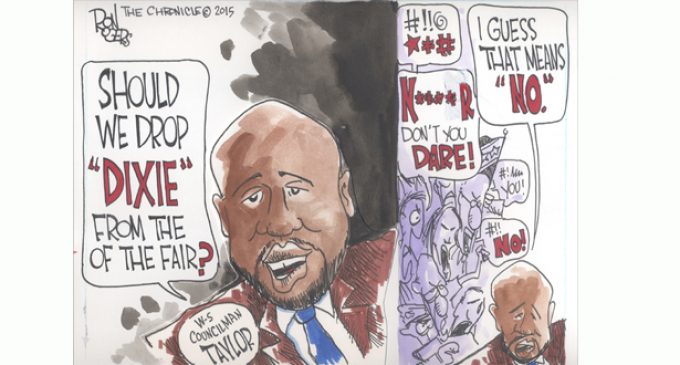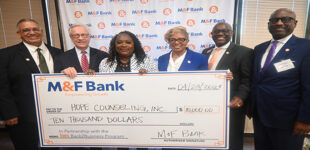Editorial: What’s in a name? For some, it’s economics

In above photo: Illustration by Ron Rogers for The Chronicle
The meeting of the Winston-Salem City Council finance committee on Aug. 10 turned into an opportunity to target a black city councilman who was trying to help the Dixie Classic Fair become more marketable. The committee was discussing ways to make the fair more attractive to customers.
Councilman James Taylor Jr., who is on the committee, mentioned at the meeting that he had heard from some of his constituents who felt the word ‘Dixie’ was a divisive word associated with the Confederacy, and what if the name were changed. It might attract people who have said they will not attend the fair because it has the word “Dixie” in it. That term offends many in the African-American community because of what it represents to them: a time when black people were slaves in America. There was an immediate backlash when this suggestion was made public. Don’t change that name, people told Taylor. Vehemently and rudely.
The Winston-Salem Fairgrounds, home of the Dixie Classic Fair, is in need of more than $28.7 million in improvements, according to an updated master plan presented at the meeting. The committee was discussing how to attract more business to the fairgrounds, which are used year-round.
The committee is looking at other ways to attract customers, too, such as making repairs to the buildings on the fairgrounds. But the public has not responded to that. Businesses – and the fair is a business – change their names all the time in an effort to put the business in a better light, hoping to make more money. For instance, First Union, which bought Wachovia, decided to go with the Wachovia name for the new company because First Union’s name was tainted with consumers.
African-Americans, who no longer are slaves, now have money to use at businesses. When talking about economics, the term “growth area” is used quite often. African-American dollars represent a growth area for many businesses because African-Americans are huge consumers. Businesses vie for the money African-Americans spend.
So, for the councilman to suggest that the committee look at changing the name of the Dixie Classic Fair makes sense, if you take it from an economic standpoint. It’s not like the name of the fair has not been changed before. In 1897, the Piedmont Tobacco Fair was started. It then became the Winston-Salem Fair. Then its name was changed to the Dixie Classic Fair for Northwest North Carolina. Now it’s just called the Dixie Classic Fair.
“I know some of my constituents continue to have concerns over this matter, but I’ve also heard from passionate supporters of the fair as it is currently named,” explained Taylor in a news release. “At this time, I believe it is in the best interest of our city that I focus my attention on the details of the consultant’s report suggesting how to improve the fairgrounds, and how to grow our fair into the most prosperous in the state.”
So, where are the vehement voices now? Do they have alternate ideas on how to improve the fairgrounds and grow the fair?
Fair officials say the fair is profitable today. But that might not continue to be true if demographics in the area change. Businesses constantly change in an effort to gain more customers and make more money. Governments who are over businesses look at changes to do the same thing. When businesses don’t change, they might not survive. It would be a shame to have to say years from now that there used to be a fair in Winston-Salem.
















